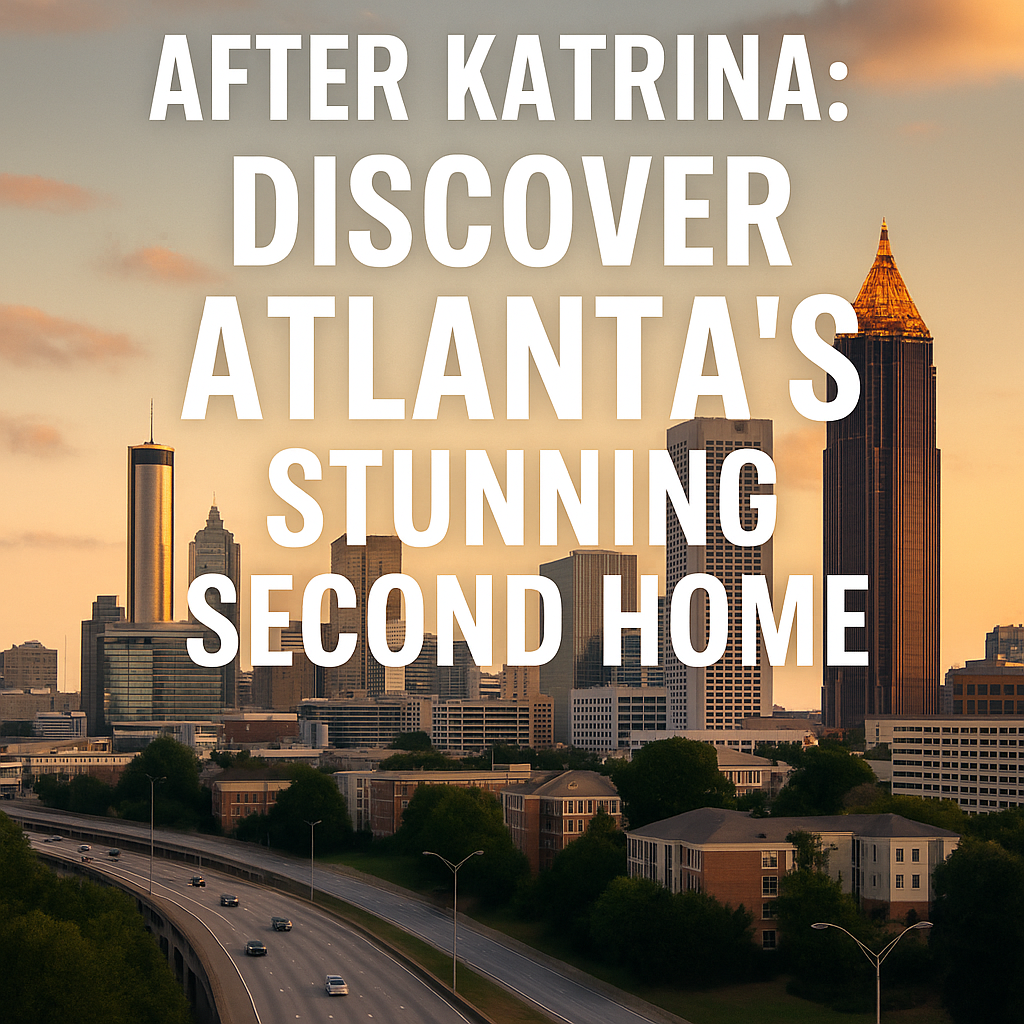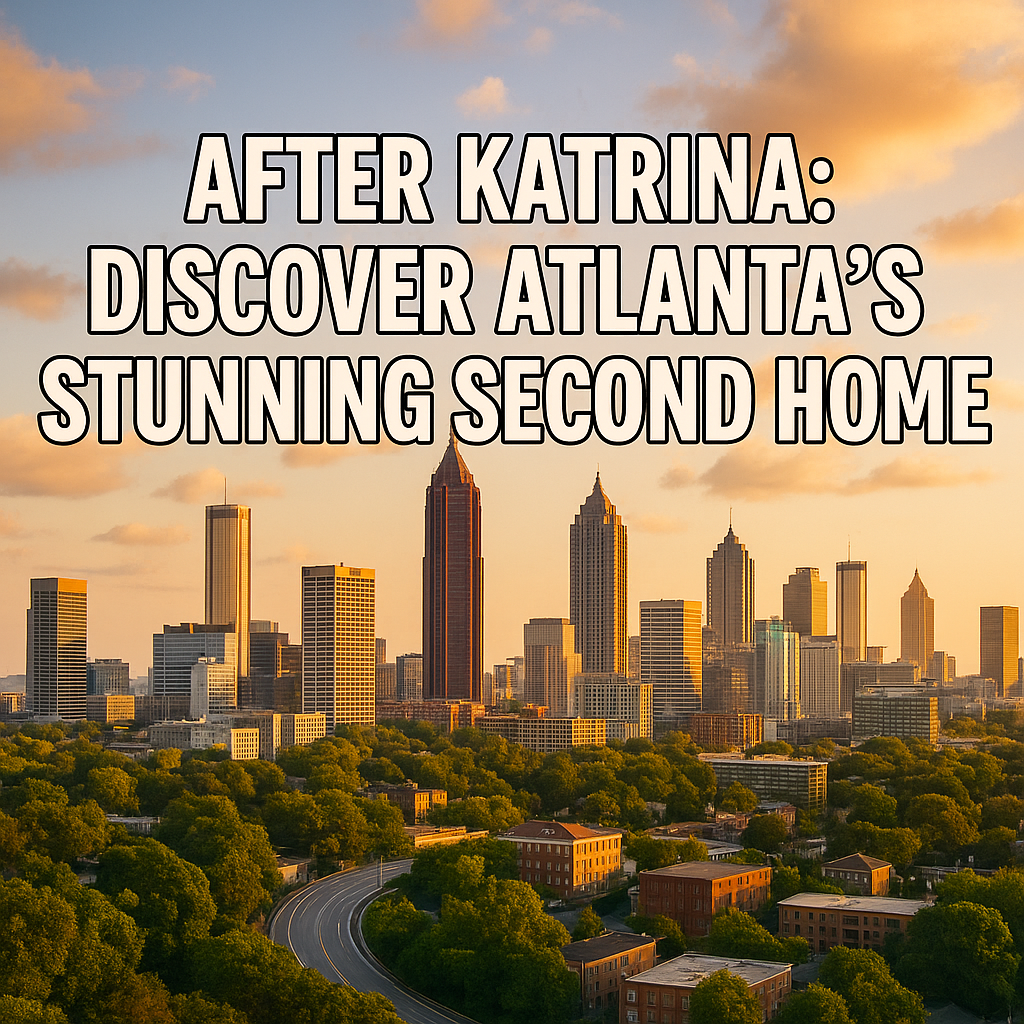After Katrina: Discover Atlanta’s Stunning Second Home
After Katrina: Discover Atlanta’s Stunning Second Home
In the wake of Hurricane Katrina’s devastating impact, the narrative surrounding displaced communities shifted dramatically, particularly spotlighting Atlanta as a viable second home for many New Orleans residents. The aftermath of the hurricane set the stage for a significant cultural exchange, impacting not only the lives of those affected but also the fabric of Atlanta itself.
Atlanta: A Welcoming Refuge

Following the catastrophic events of 2005, many families sought refuge in Atlanta, which became a welcoming sanctuary for thousands. The city’s diverse economy, established infrastructure, and well-documented history of resilience made it a compelling choice for those looking to rebuild their lives.
According to reports from The Atlanta Voice, the influx of New Orleans residents helped give rise to new communities within Atlanta, introducing the city to rich traditions rooted in Southern culture. Immigrants carried with them their music, cuisine, and celebrations, significantly enriching Atlanta’s cultural tapestry. Local businesses began catering to these new residents, creating a bustling environment that echoed the vibrancy of New Orleans.
A Cultural Renaissance
Atlanta’s transformation post-Katrina isn’t merely about physical relocation; it also represents a profound cultural renaissance. As noted in Atlanta Daily World, the blending of New Orleans and Atlanta cultures birthed collaborative art, music festivals, and culinary fusion that delight both locals and newcomers alike.
– Culinary Ventures: Many restaurateurs have attempted to capture the essence of New Orleans cuisine, introducing dishes like gumbo and po’boys into Atlanta’s dining scene. Food festivals celebrating Southern cooking have gained popularity, melding flavors and techniques from both cities.
– Musical Evolution: The music scene also reflects this cross-pollination. Jazz and blues from New Orleans have found a home in Atlanta’s live music venues, creating dynamic performances that keep the spirit of those genres alive while attracting a diverse audience eager for authentic experiences.
However, it’s also essential to acknowledge the contrasting perspectives on this migration. While many view this cultural shift as a positive amalgamation, others have expressed concerns over gentrification and the dilution of original neighborhoods in Atlanta. The arrival of new residents can strain resources and change long-standing community dynamics.
Bridging the Gap: Community Building Efforts
Community organizations and support groups have been pivotal in ensuring that the transition is smooth for newcomers. Nonprofit sectors in Atlanta have risen to the occasion, offering various resources designed to help displaced individuals settle in comfortably. Workshops highlight local history, lifestyle tips, and resources about education or employment opportunities.
Local Initiatives
Many local organizations have launched initiatives aimed at fostering understanding and inclusivity among the new and existing populations. Events designed to celebrate heritage from both locales help bridge cultural gaps:
– Cultural Festivals: These events aim to celebrate both Atlanta and New Orleans heritage, attracting visitors and nurturing community spirit.
– Workshops and Forums: Community dialogues encourage discussions about challenges, aspirations, and common ground among residents from both cities.
As the city continues to evolve, the blending of these two rich histories creates new narratives that contribute to Atlanta’s identity. Nevertheless, progress is complex, with the realities of economic disparity and social integration posing ongoing challenges.
The Road Ahead
Looking to the future, it’s crucial to balance growth with empathy. While Atlanta has embraced many displaced persons in the wake of Hurricane Katrina, the narrative is evolving. The dialogue surrounding community identity, tradition, and economic stability should remain open and inclusive.
In summary, Atlanta’s role as a second home post-Katrina is marked by cultural vibrancy and community resilience. As the city becomes increasingly diverse, it is essential to recognize the complexities involved—from opportunities to potential challenges—that accompany such profound changes in urban demographics. Atlanta continues to stand as a beacon of hope and a model of adaptability in the face of crisis, but the journey is not without its hurdles.















